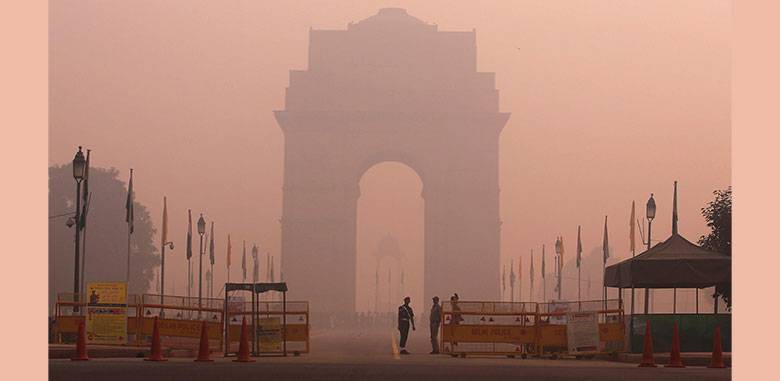
India’s cricket World Cup has been marred by the bad air quality, with Mumbai also facing high pollution levels. Farmers in the northern Indian states of Punjab, Haryana and Uttar Pradesh burn their crop waste in October to clear their fields for winter crops. This causes poor air quality that harms the respiratory health of people and animals. The air turned grey and the AQI reached 480 in some Indian cities, causing eye irritation and sore throats for residents. Delhi had the worst pollution levels in October since 2020. An AQI of 0-50 is good, while anything between 400 and 500 affects healthy people and is dangerous for those with existing diseases.
Smog is a type of air pollution that forms when sunlight reacts with fine particles and gases in the atmosphere. It reduces visibility and can cause serious health problems for people and animals. Smog is especially harmful for people with respiratory diseases, such as asthma, bronchitis, and emphysema. Smog can also irritate the eyes, nose, throat, and skin, and increase the risk of heart attacks and strokes.
Pakistan and India are among the most affected countries by smog in the world. According to the World Health Organization, 14 of the 15 most polluted cities in the world are in these two countries. The main sources of smog in Pakistan and India are traffic emissions, crop burning, coal-fired power plants, industrial activities, and household waste. These sources emit large amounts of PM2.5, which is the most dangerous type of air pollutant for human health.
Smog has a negative impact on both the environment and the economy of Pakistan and India. It damages crops, forests, and wildlife, and contributes to climate change and acid rain. It also affects the quality of life and productivity of millions of people, who have to face health issues, hospitalizations, and premature deaths.
Smog also reduces tourism, trade, and transportation, and increases the cost of health care and energy. According to a World Bank report, the annual cost of air pollution in Pakistan is about 5.88 percent of its GDP, while in India it is about 8.5 percent of its GDP.
One of the major factors that worsens the smog situation in Pakistan and India is the lack of cooperation and coordination between the two countries. Both countries blame each other for causing the smog, but do not take adequate measures to reduce their own emissions.
For example, India accuses Pakistan of burning rice stubble, which creates smoke that travels across the border. Pakistan accuses India of not controlling its industrial and vehicular pollution and burning waste which affects the air quality in Punjab and other regions. However, neither country has implemented effective policies or regulations to curb the sources of smog, such as banning crop burning, enforcing emission standards, promoting renewable energy, and raising public awareness.
Smog is a transboundary problem that requires a joint solution. Pakistan and India should work together to develop a regional framework to combat smog, based on scientific data, mutual trust, and shared responsibility. They should also cooperate with other South Asian countries, such as Nepal, Bangladesh, and Sri Lanka, who also face the challenge of air pollution. By addressing the smog issue, Pakistan and India can not only improve their environment and health, but also create opportunities for dialogue and peace in the region.
To stay safe from smog, you should take some preventive steps. Before going outside, you should check the AQI in your region and remain indoors when the AQI is high. Avoid outdoor activities, especially in the early morning and late evening hours when smog levels are usually the highest. N95 masks or respirators can help you breathe better by filtering out the fine particles and gases that cause smog.
Also, using air purifiers at home and drinking enough water can reduce the effects of smog. A diet rich in vitamin C, magnesium, and omega fatty acids can strengthen your immune system and protect your lungs. By avoiding activities that create smog, such as burning garbage and driving too much, and by taking your prescribed medications for respiratory problems, you can make a difference in lowering smog's impact.

